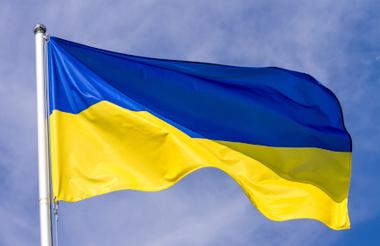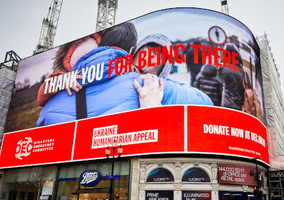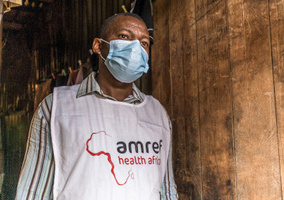Since Russia invaded Ukraine a year ago today, countless charities and volunteers have offered support to those left stranded and displaced by the war.
The humanitarian response has been immense. Take the Disasters Emergency Committee’s (DEC) Ukraine fundraising appeal. So far, it has raised over £400m, of which 71% was donated directly to DEC and 29% to its member charities that used DEC co-branding.
Many individuals wanted to do more than donate to support victims of the war. According to the Charity Commission website, 31 charities across the UK have registered in response to Russia’s escalation of the war so far with the sole aim of relieving the needs of the people of Ukraine.
These newly-registered charities have faced specific challenges. Not only do they operate in a high-risk environment, but they also do not have access to the same resources as their long-standing counterparts.
A difficult start
Nearly a month after the start of the conflict, the Commission said that it was “prioritising applications to register charities with objects that relate to the crisis in Ukraine”, recognising that people wanted to “take urgent action and help those in need”.
However, some charities still reported difficulties getting registered.
Richard Jones, chair of Revive Ukraine, says: “We waited seven months for the Charity Commission’s approval. For novices such as ourselves, it wasn’t straightforward to set up everything.”
A spokesperson for the regulator said: “We introduced a special priority route for all new applications connected to the war to be assessed within 48 hours whilst still ensuring we applied our necessarily robust legal test for charitable status.
“On top of this test, we identified certain risk areas, such as in aid convoys and medical supplies, which required further scrutiny in the context of the dangerous and complex situation these charities were seeking to operate in.
“While we appreciate that speed in registration was important to applicants reacting to the invasion of Ukraine, it is right that we assessed all applications carefully to make sure that only those which met the test for charitable status were registered.”
Another challenge faced by some charities was accessing banking services.
Steve Lewis, chair of Hope for Ukraine, recalls that after his charity was able to put £10,000 into a new account, the bank blocked it for three months while seeking “further information”.
“It took them two months before they asked for that information and a further month to process it. The admin of complaining to the chair of the Charity Commission, the bank and the Financial Ombudsman Service (FOS) and reporting a serious incident to the Commission put a significant strain on our resources. The FOS enquiry was only completed [in February 2023].”
Peter Martin, founding director of Hope Lebedyn, says it was a “nightmare” to set up a bank account.
“Getting money out to Ukraine at the beginning was hard and traditional bank methods almost impossible. It took a month to clear funds. We had to be innovative to find new ways to get funds out to the team working on the ground in Ukraine.”
Donor fatigue and lack of funding
Jones believes that supporters seem to be less interested now in helping Ukrainians than they were when the conflict started.
His charity began collecting humanitarian aid for Ukraine at the outset of the war, receiving enough donations to send a fully loaded van to the country within a week. It now focuses on helping Ukrainian refugee families in the Hart and Rushmoor areas of Hampshire.
“Funding was initially relatively forthcoming through crowdfunding when the objectives for the public were obvious,” he says. “It’s very difficult to raise funding now because there is a general perception that our Ukrainian refugees are getting everything they need.
“There’s also a very competitive market aimed at the public who, with ever more financial pressures, are very choosy about where they give when they feel inclined to support a cause. The current earthquake disaster [in southern Turkey and north-west Syria] quite rightly goes to the top of the need list. However, we still need to support our Ukrainian guests.”
Lewis of Hope for Ukraine also notes a decline in donations. “We were established at the Charity Commission on 28 April. Throughout the summer and autumn of last year, our donations were fairly stable but as winter approached, we started to see some donor fatigue and had to turn to more commercial ways of raising the donations we need.”
The other issue for recently registered charities, Jones points out, is the lack of expertise to apply for grant and government funding, with processes that are “slow and demanding”.
This is a view shared by Karol Swiacki, founder and chief executive office of Ukraine Relief, a charity that sends essential supplies to Ukrainians in need.
The charity received about £200,000 in donations last year which allowed to send tonnes of aid to Ukraine and cover fuel costs of the trucks carrying the goods.
Ukraine Relief began its life as Help from Bournemouth to Ukraine on the second day of the conflict. Swiacki explains that the initiative received so many goods from various countries that it then changed its name to Ukraine Relief and registered as a charitable incorporated organisation in July.
As the charity has gained more traction both nationally and internationally, Swiacki says it is now looking to obtain government funding. But it is “really difficult” to know how to go about it “when you don’t have knowledge as a charity”, he says.
‘Rebuilding is a challenge’
With the war showing no signs of abating, it is difficult for charities to plan ahead. It is estimated that 18 million of people in Ukraine will need humanitarian aid and protection this year.
Martin of Hope Lebedyn says: “We will endeavour in our small way to reach the people and help within the bounds of the trust but each day is different with military activity some days and not others.
“Rebuilding is a challenge therefore as we don’t know for how long this war will continue. In our work, we’re confident we will be making a difference in the region in which we operate.”
For Swiacki, this year will be about helping more children and families who cannot run away from Ukraine as well as investing in schools.
“We want to help rebuild Ukraine so people can feel safe in that country. It’s a huge plan but it can be done because of our contacts in Ukraine. We’re working not to be involved in corruption. It’s important to listen to the people you’re helping so the money and aid are going to the right places,” he says.
Editor's note: This article has been updated to include comment and further information from the Charity Commission.
Related articles











